(https://doi.org/10.55612/s-5002-049)
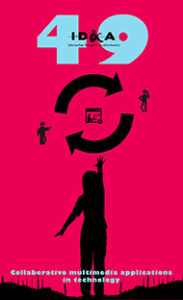

Carlos Arevalo-Mercado
is a full-time research professor in the Department of Information Systems at the Universidad Autónoma de Aguascalientes (UAA), Mexico. He was head of department between 2014 and 2020. He holds a PhD in Exact Sciences and Software Engineering from the same university. His research areas focus on the development of educational technologies and methods based on cognitive science, particularly in the area of basic programming learning. He is a frequent collaborator at Tampere University of Applied Sciences (TAMK), Finland, in multinational projects funded by the European Union.

Gökçe Elif Baykal
is an Assistant Professor at the Department of Communication Design at Özyein University, Istanbul. She holds PhD in Design, Technology & Society from Koç University. Her research focuses on incorporating developmental and educational theories in interaction design methods in child-computer interaction.

Héctor Cardona-Reyes
is Catedra CONACYT assigned to the Mathematics Research Center in Zacatecas, Mexico. He received the degree of Doctor in Computer Science at the Universidad Juarez Autónoma Tabasco, México. His research topics include Human-Computer Interaction, interactive environments applied to health and education, web engineering, video game design and virtual reality. Additionally, he is a level 1 member of the National System of Researchers of CONACYT in Mexico.

César Collazos Ordóñez
received the systems and computer engineer degree at the University of Los Andes, Bogotá, Colombia, in 1993, and the Ph.D. degree in sciences from the University of Chile, Santiago, Chile, in 2004. He is currently a full professor in the Systems Department at the University of Cauca, Popayán, Colombia. His areas of interest are human-computer interaction, computer-supported collaborative learning and computer-supported collaborative work.

Juan Cruz Gardey
is a PhD student at Facultad de Informática, Universidad Nacional de La Plata. His research is focused on automating the usability evaluation of web applications.

Eva Eriksson
is an associate professor at Aarhus University in Denmark, with a PhD from Chalmers University of Technology in Sweden. Eva specializes in interaction design methodology including participatory design, and in designing interactive technologies in both formal and informal educational contexts.
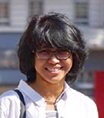
Sushardjanti Felasari
is lecturer at Postgraduate Programme in Digital Architecture, Department of Architecture, Universitas Atma Jaya Yogyakarta in Indonesia. She is interested in exploring contextual information systems including digital collective memory and virtual environment to support learning in architecture and urban design. Her current research also focuses on the co-design of smart environment, digital media and social media data related to urban design and sustainable smart city.

Alejandro Fernandez
is a full time professor at the Faculty of Informatics of the National University of La Plata, in Argentina. He is also a researcher at the Scientific Research Commission (CIC) of the Buenos Aires province, and the director of the LIFIA research center. In 2005 he obtained his PhD from FernUniversitaet Hagen in Germany. Since then, his research has been focused on the intersection of CSCW, knowledge management, and software engineering.
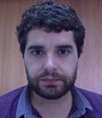
Sergio Firmenich
is Assistant Professor at Facultad de Informática, UNLP and researcher at Conicet. He obtained a PhD UNLP, Argentina in 2013.
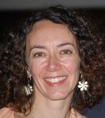
Alejandra Garrido
is a full professor at Facultad de Informática, Universidad Nacional de La Plata, Argentina, where she is Associate Director of the Research and Development in Advanced IT Lab (LIFIA). She is also a researcher at CONICET. Her research interests are focused on software evolution through refactoring and the application of patterns, to improve both internal and external qualities of software. Alejandra is also the Director of the Master degree in Software Engineering. She holds a PhD in Computer Science from the University of Illinois at Urbana-Champaign (UIUC). She is also a member of the Hillside Group.

Rodolfo Gonzalez
is opensource developer and Linux support engineers at Conicet and also he has been a research interest web engineering at LIFIA research center in The UNLP Facultad de informática.

Toni Granollers
worked for several years in private companies as a computer programmer and Project Manager, and is now fully involved in teaching and researching activities in the field of human-computer interaction (HCI). He is currently a professor in the Computer Science and Industrial Engineering Department at University of Lleida and Director of the Research Group on Human-Computer Interaction and Data Integration (GRIHO) at UdL. He is also a member of AIPO (the human-computer interaction association), ACM-SIGCHI (a special interest group on HCI) and the HCI-Collab network. He teaches on various international Master’s and doctoral programs, and is an author of several books, all of which are related to HCI.

Julian Grigera
is a teaching assistant at Facultad de Informática, Universidad Nacional de La Plata, Argentina, from where he holds a PhD in Computer Science. He is also a researcher at CONICET, Argentina. His research interests are Web Usability and Web Engineering.

Ola Knutsson
is a PhD in Human–Computer Interaction and is a senior lecturer at the Department of Computer and Systems Sciences, Stockholm University. His research focuses on participatory design of learning environments, design patterns and digital literacy.
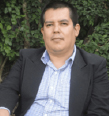
Jaime Muñoz-Arteaga
is a research professor at the Universidad Autónoma de Aguascalientes (UAA) in Mexico. He received his PhD in computer science from the University of Toulouse I, in France. He is a member of the SNI level I in Mexico. His research topics are in the domain of Human-Computer Interaction, e-learning, and Web Engineering. He has come to lead research projects on the digital division, collaborative textbook production, and interactive systems. He has published two books on Software Engineering, a book on Human-Computer Interaction, and two books on learning object technology.

Carlos Alberto Peláez Ayala
is a professor in the Operations and Systems Department of the Universidad Autónoma de Occidente, Cali, Colombia, and member of the Research Group in Telematics and Applied Informatics – GITI, at the same university. He is Ph.D. in Engineering of the Red Mutis Network University Consortium. His areas of interest are multimedia systems, user experience, user-centred design and software engineering.

Chengzhi Peng
is senior lecturer in Architectural Science at School of Architecture, University of Sheffield in the UK. His research interests are data-driven predictive modelling for optimising planning and design of sustainable and liveable building stocks over the time frame of climate change projections.

Robert Ramberg
Robert Ramberg is a PhD in cognitive psychology, is a professor in Computer and Systems Sciences at Stockholm University and research director at the Swedish Air Force Combat Simulation Centre (FLSC). His research focuses on design methodology and representational tools for learning and collaboration.

Miguel Redondo Duque
received the technical engineer degree in systems of computer science from the University of Castilla–La Mancha, Ciudad Real, Spain, in 1995; degree in computer science from the University of Granada, Spain, in 1997; and the Ph.D. degree in computer science and engineering, also from the University of Castilla–La Mancha, in 2002. He is currently a full professor in the faculty of computer science at the University of Castilla–La Mancha. His areas of interest include the application of software engineering techniques to the development of e-learning systems, the development and application of software engineering techniques in human-computer interaction, and the application of eye-tracking techniques in evaluation of user/learner experience.

Oscar Revelo Sánchez
received the systems engineer degree from the Mariana University, San Juan de Pasto, Colombia, in 2005, and the master’s degree in computing from the University of Cauca, Popayán, Colombia, in 2018. He is currently pursuing the Ph.D. degree in Electronics Sciences at University of Cauca, Popayán, Colombia, and is also a full professor in the Systems Department at the University of Nariño, San Juan de Pasto, Colombia. His areas of interest are software engineering, collaboration engineering and systems optimization.

Elisabeth Rolf
is a PhD student at the Department of Computer and Systems Sciences at Stockholm University and an upper secondary teacher. The research focuses on design patterns in the field of TEL.

Gustavo Rossi
is Full Professor at Facultad de Informática, UNLP and researcher at Conicet. He holds a PhD from PUC-Rio, Brazil; he is member of the editorial board of IEEE Internet Computing, and the WWW Journal. His research interests are Web Engineering, Requirements Engineering and Human-Computer Interaction

Andrés Solano
is a professor in the Operations and Systems Department of the Universidad Autónoma de Occidente, Cali, Colombia, and a member of the Research Group in Telematics and Applied Informatics, at the same institution. He received a Ph.D. in Electronic Sciences from Universidad del Cauca, Popayán, Colombia, in 2015. His areas of interest are human-computer interaction, usability engineering, and software engineering.

Olof Torgersson
is an Associate Professor of Interaction design at the Department of Computer Science and Engineering at Chalmers University of Technology and University of Gothenburg. Originally a computer scientist, Olof has worked with research and teaching dealing with a range of topics from logic programming, through medical informatics to design for mobile devices and co-located interaction supported by technology.

Cristian Trujillo-Espinoza
was born in Zacatecas, Zacatecas, Mexico, in 1993. He obtained his degree in Computer Systems Engineering in 2016, at the Instituto Tecnológico Superior de Jerez. He is currently pursuing his master’s degree in Software Engineering at the Center for Research in Mathematics Zacatecas unit. His main areas of interest are the development of virtual reality tools, human-computer interaction, and software engineering.
